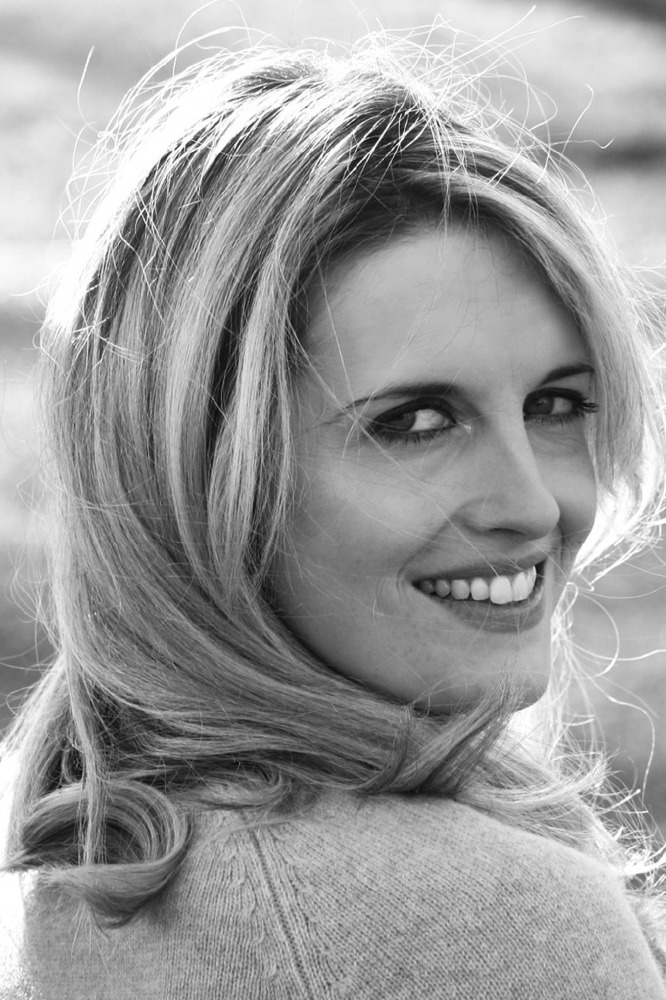Nowadays, we are finally reading the women we deserve. This statement is provocative, undoubtedly, but who can argue against the fact that we are reading the stories of brave women more than ever before? After all, the #MeToo tsunami could not have begun without the courageous testimonies of women who refused to be shouted down or intimated into denying their stories. Something wonderful happened with the incredible multiplication of statements about sexual harassment, as woman after woman came forward, out of the shadows. The stories of strong women had inspired: people felt encouraged to talk, and to write about experiences which they had otherwise thought were too shameful to bring out into the open.

Sophie Law, , author of Olga's Egg (Clink Street, 2018) writes for Female First
Role models inspire people to do great things, and yet I want to talk more about the notion of the ‘inspirational woman’. Again, today, I think we are witnessing a sea change: it is the flawed women who fascinate us. Rather than condemning them and observing them from afar, as we might have done in the past, we are now celebrating them as never before. Think of Fleabag, Phoebe Waller-Bridge’s hilarious and uncomfortably accurate portrayal of an angry, self-loathing young woman in London. I say ‘uncomfortable’ because you want to turn away, but you can’t: you’re riveted by the compelling tale of a woman’s car-crash life, and you love her for it.
The protagonist in my novel, Olga’s Egg, is indelibly flawed. Assia can’t forgive herself for something that happened in the past and she remonstrates with herself continually. On a number of occasions she thinks she’s going mad, and yet it is her capacity for self-doubt which enables her to question things and to look beyond the veneer. She knows there is something wrong with the newly-discovered Fabergé egg, and she will risk her life to prove it. Assia has a twin sister in the novel and when I was writing it, I enjoyed exploring the dynamic between twins: how does one twin feel when the other is more successful, or takes a path which is wildly different from their own. Assia is convinced that she is the defective twin and that Tanya, her twin sister, is living the life she should be living. Assia truly believes that she and Tanya had something perfect in their twinship which she managed to destroy all by herself. All great heroines have a flaw in their makeup: Anna Karenina (adulteress), Scarlett O’Hara (schemer), Elizabeth Bennet (a wit with exaggerated prejudice), Lisbeth Salander (criminal); it is their imperfection that enables the reader to relate to them, but which also makes them compelling as we watch them acting and speaking as we would not dream of doing ourselves.
Which brings me to my next point: flawed women are passionate, and passionate women are flawed. Passion is an emotion which simply couldn’t exist in someone balanced or measured, and it makes people do foolish and brilliant things. In writing Assia, the heroine of my novel, I based her passion for Fabergé on my own obsession with Fabergé’s creations, an obsession which I channel every day in my job as a Russian art specialist. In my field, you have to be passionate about what you do because it can be a demoralising business, full of fakes and false leads, and if you aren’t tenacious and well-versed in your subject then you don’t find the treasure. A passion bordering on an unhealthy obsession is what gets me out of bed and it is what motivates Assia when the odds are stacked against her.
As Waller-Bridge said in Elizabeth Day’s podcast series How to Fail, ‘write the part you’re not reading’. Flawed women are on trend and we don’t want them to go out of fashion. Think of Lena Dunham’s Girls – a very necessary leap forward from the caricatures we saw in Carrie, Miranda, Charlotte and Samantha in Sex and The City – and Gillian Flynn’s self-harming Camille Preaker in Sharp Objects. Ruth Ware harnesses female anxiety and self-doubt in her leading characters in The Woman in Cabin 10 and In a Dark, Dark Wood. Thankfully, today we are reading more of what we weren’t reading before: everyday women – who are angry, uncompromising, passionate, mean, indulgent, vulnerable, weak - you and me. And we are perfectly inspirational.

Sophie Law's new novel Olga's Egg (Clink Street, 2018) is available now.

